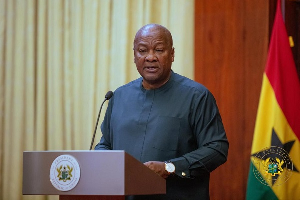I am not about to write anything new. And I know you might have questions about why I am bringing this up now since it is not a trending topic. The answer lies right there in the sentence - this article is all about trends just that this one, in particular, is 'one of a kind'.
Let me delve into a little history before we proceed. Racism has been going on for centuries, it's still happening but as to whether it will ever end, I do not know. What I do know is a trend in the world of advertisement that I would like to draw our attention to.
Dove did it when they decided to advertise their body-wash by portraying a black girl removing her dark clothes to unveil a white girl with lighter coloured clothes; a similar thing happened with a Chinese advert in 2016 which showed a man of colour being 'white-washed' by a detergent.
Then Nivea came along with the "White is Purity" deodorant advert and also erected a billboard in Ghana with the inscription "For visibly clearer skin" in relation to a cream they wanted to promote. This led to a laudable move by Fuse ODG and the #NiveaPullItDown campaign causing a new billboard to be erected replacing the old one.
Remember the Play station Portable advert that said "White is coming" which showed a light skinned girl in white clothes gripping the jaw of a dark-skinned girl in dark clothes? Well, I agree with you that it was long ago in 2006 but this is to emphasize the point that this form of advertisement did not start now.
Then there was an Amazon clothing site where there was a white child in a top with an inscription "Slavery gets shit done".
Oh! Not forgetting the famous H&M scandal that showed a black child wearing a green sweatshirt with an inscription "Coolest Monkey in the Jungle". This caught the attention of the public including celebrities and generated a lot of controversies with counter-inscriptions like : "Coolest King in the World/King of the world etc."
So what do all these companies have in common? They must be some 'smart' people to know that the market of advertisement deals on the principles regarding what is able to trend and what is not. In their eyes, trending is their ultimate goal and it looks like they desire to achieve that by hook or crook (via good or bad publicity). I would like to call this form of advertisement "Instigative advertisement." The rationale is to trend for as long as possible by generating conversation and eventually causing an uproar.
Did they succeed? Well, unfortunately I am afraid they did when they got people on virtually all social media platforms (especially Twitter) and TV show hosts having discussions on the matter. Other companies also tried this; some of these companies were not known but as soon as they did something similar, they became the most-talked-about entity worldwide.
The second thing they all have in common is apologising after the deed is done. Apologies are good but what's the essence if you are going to do it again?
So here's my view on all this hullabaloo. I think we should avoid (as much as possible) giving publicity to companies that decide to indulge in these things by completely ignoring them with all the contempt they deserve. Yes, we've seen it but we won't give you the response you are expecting.
Alternatively, we could also adopt the Fuse ODG style of trying to change these things by taking action and not just by talking. It is very important that in as much as we would not like to give these companies the popularity they seek, we must also not allow these toxic adverts to infiltrate the minds of our children and make the black race seem inferior.
In this case, keeping silent might be an unpopular opinion but if speaking about it means making the notorious popular then we must accompany it with action to de-popularise the notorious.
Opinions of Monday, 2 April 2018
Columnist: Naa Adzoa Adzeley Boi-Dsane



















